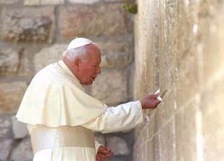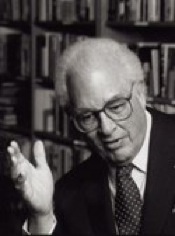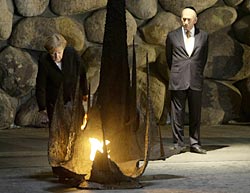Israel is celebrating her sixtieth, a year and a half after I celebrated mine. I don’t remember a time when I didn’t know and care about her. I grew up in Brooklyn among Zionist orthodox Jews; given how great the grief was after the Holocaust, and how high the elation at Israel’s founding, her name could easily have been among my first words. I grew up loving America, idolizing my uncles and my teachers who had fought in America’s wars; I was even named after my mother’s favorite cousin, who went down with his B-25 during World War II.
But if America was my mother—the water I drank, the air I breathed—Israel was my first crush, my love, my dream. I was twelve when I read Exodus—I can still picture myself lying prone on my bed flipping the pages of the floppy paperback, which had suffered from the intensity of my reading. It’s not that I owe my love of Israel to Leon Uris— my grandparents, my parents, my beloved rabbi, and many others set me up for it. But that story of Israel’s fight to be born from the ashes of the Shoah, beset by Arab enemies as hateful and numerous as the Germans (although fortunately less resourceful) took over my heart and mind. I never recovered, and I’m glad.
Israel was then just ten years old, and its survival was constantly in question. Now, at sixty, it is almost as old and creaky as I am—less idealistic than we used to be, alas, but on more solid ground. We’ve both accumulated a lot of baggage over the years, and more than a few regrets. We’ve had joys and suffered losses, we’ve seen friends come and go, we’ve changed our view of ourselves and realized that things have not turned out quite the way we hoped. Nevertheless, looking back, warts and all, we’ve had a good run. We’ve accomplished less than we dreamed but more than enough.
I’m a dyed-in-the-wool American and likely to remain so. But, to mangle the beautiful words of a twelfth-century poet, part of my heart is in the Middle East. Each time I go to Israel—eight trips so far—I think, “I belong here.” But then I don’t, really. Call me a dreamer, but I believe in America at least as much, in different ways for different reasons, and America is my place.
Israel is a homeland for a people shattered and almost destroyed by history. I am proud to be a part of that people. But America—again, warts and all—is an idea and an ideal for all humanity. As with Israel, I wish with all my heart that America lived up to its own dream of itself. But it’s the best damn idea for a country ever invented, and I am proud to be a part of that idea.
Last night at Israel’s birthday bash in Atlanta, I stood and chatted and ate and drank and sang among other people like me—longing at times for their Jewish homeland but living in their American one. There is no contradiction, but there is that pull. For Jews, including Americans, who make aliya—the ascent—the more power to them. I will be visiting as often as I can, and I hope the visits will be longer and deeper as time goes by. But I will stay down here in the practical mess of America’s melting pot, reaching constantly for the American idea.
Last evening’s highlight for me was a short speech by Reda Mansour, Israel’s extraordinary Consul General for the southeastern region. He is a gifted young man with a bright future, the author of three books of poetry in Hebrew, soon to earn a doctorate in history from Haifa University. He speaks five languages. He said that he is the third generation in his family to serve in the Israel Defense Forces and that in three years his oldest son will be the fourth.
Oh, did I mention that Reda Mansour is not Jewish? He is a Druze—a branch of Muslims something like Unitarians—who have often been persecuted, but have thrived in Israel. He has devoted his life to two causes: defending Israel and promoting tolerance. He says that Israel’s greatest accomplishment is peace, and that that accomplishment is still ahead of her. But he also says that Israel, at 60, is already a beacon of tolerance and democracy in a region fraught with hatred, tyranny, and strife.
In other words, like me and Reda, Israel too is reaching for the American idea.
Reda’s grandfather, who lived to be over a hundred, praised the Jews for their tolerance and achievements; the grandson is living out the dreams of his family and his people. In today’s Atlanta Journal-Constitution, Reda wrote, “Israel will prove that the victory of peace over hate is inevitable.” As my grandfather would say, fun zayner munt tzu Gottes eyer—from his mouth to God’s ear.



